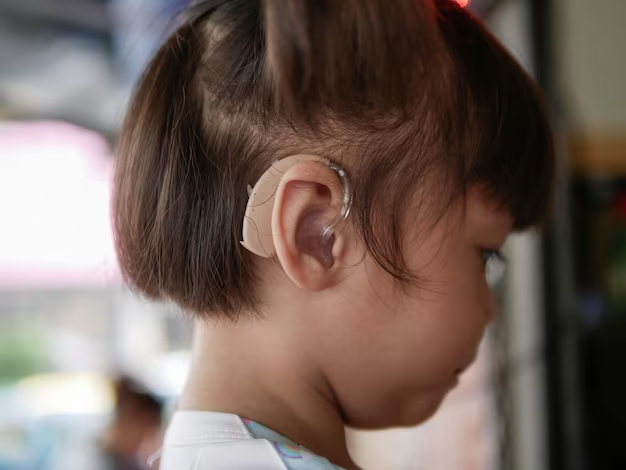Your Guide to Does Medicare Cover Cochlear Implants For Single-sided Deafness
What You Get:
Free Guide
Free, helpful information about Medicare FAQ and related Does Medicare Cover Cochlear Implants For Single-sided Deafness topics.
Helpful Information
Get clear and easy-to-understand details about Does Medicare Cover Cochlear Implants For Single-sided Deafness topics and resources.
Personalized Offers
Answer a few optional questions to receive offers or information related to Medicare FAQ. The survey is optional and not required to access your free guide.
Does Medicare Cover Cochlear Implants for Single-Sided Deafness? Here's What You Need to Know
When faced with single-sided deafness, the natural inclination for many is to seek solutions that could improve their quality of life. Cochlear implants have emerged as a beacon of hope, offering a dramatic boost in sound perception for those with hearing impairments. But a pressing question remains: Does Medicare cover cochlear implants for single-sided deafness?
Understanding Medicare’s Coverage for Cochlear Implants
Traditionally, Medicare—a federal health insurance program primarily for those aged 65 and older—covers cochlear implants for individuals with bilateral (both ears) moderate to profound sensorineural hearing loss, provided other hearing aids haven’t offered satisfactory results. The key hurdle for single-sided deafness patients is that Medicare's criteria emphasize bilateral deafness.
For those with single-sided deafness, the coverage depends on multiple factors, including specific medical necessity and recommendations from hearing specialists. As of now, Medicare coverage for unilateral cochlear implants isn't explicitly guaranteed, meaning individual cases may require further evaluation and appeals. It's essential for patients to consult their healthcare providers and confirm with Medicare or a Medicare Advantage plan to explore their potential coverage options.
Pathways to Financial Support if Medicare Isn't Enough
Given these limitations, individuals often look for alternative financial support pathways to manage the high costs associated with cochlear implants, which can exceed $30,000, including surgery, device, and post-operative therapy. Here’s where the landscape broadens into helpful solutions:
1. Medicaid and State-Assisted Programs:
While Medicare might have constraints, Medicaid—especially state-specific programs—might offer more flexibility for cochlear implants, including those for single-sided deafness. It's crucial to check eligibility, as Medicaid guidelines vary by state.
2. Manufacturer Assistance Programs:
Some cochlear implant manufacturers provide financial aid programs to help offset costs. These programs often include payment plans or substantial discounts based on income and insurance coverage. Investigating these can yield immediate support.
3. Nonprofit Organizations:
Organizations like the Hearing Loss Association of America (HLAA) and other nonprofits may offer grants or financial aid for cochlear implant recipients. These entities can sometimes bridge the gap between patients and financial assistance.
Broader Financial Strategies and Support
Recognizing the broad spectrum of financial needs beyond cochlear implants is important. Here are other avenues to consider which can assist in managing out-of-pocket costs or broader financial challenges:
Government Aid Programs: Look into additional programs like Social Security Disability Insurance (SSDI) or Supplemental Security Income (SSI) for those who qualify based on disability status.
Debt Relief Options: For individuals grappling with medical bills, exploring debt consolidation or relief programs can be vital in managing and reducing financial stress.
Credit Card Solutions: Some credit cards offer 0% APR introductory rates for medical expenses, providing a feasible short-term solution to high medical costs.
Educational Grants: If you're exploring career changes due to hearing loss, consider educational grants or scholarships which might support training in new fields less impacted by hearing impairments.
Taking strategic steps to navigate these various channels can significantly alleviate the financial burden posed by cochlear implants when Medicare falls short. Stay proactive by consulting healthcare professionals, financial advisors, and assistance programs to streamline your journey toward improved hearing and financial health.
Financial Assistance and Resources
- 🏥 Medicaid Programs: Check state-specific programs for potential cochlear implant coverage.
- 🏦 Debt Relief Solutions: Debt consolidation options for managing large medical expenses.
- 📈 Credit Card Offers: Find credit cards with special rates for healthcare expenses.
- 🎓 Educational Grants: Support for career transitions due to hearing loss.
- 🔍 Nonprofit Grants: Organizations providing direct financial assistance for implants.
What You Get:
Free Medicare FAQ Guide
Free, helpful information about Does Medicare Cover Cochlear Implants For Single-sided Deafness and related resources.

Helpful Information
Get clear, easy-to-understand details about Does Medicare Cover Cochlear Implants For Single-sided Deafness topics.

Optional Personalized Offers
Answer a few optional questions to see offers or information related to Medicare FAQ. Participation is not required to get your free guide.


Discover More
- a Medical Provider That Accepts Medicare Assignment Must
- a Medical Provider That Accepts Medicare Assignment Must Quizlet
- a Medicare Patient Received Treatment That Isn't Covered By Medicare
- a Medicare Patient Receives Treatment That Isn't Covered By Medicare
- a Medicare Supplement Basic Benefit Is Quizlet
- a Medicare Supplement Companies
- a Medicare Supplement Policy Is Quizlet
- a Medicare Supplement Policy Must Not Contain Benefits Which
- a Patient Received Treatment In August Medicare
- Am I Eligible For Medicare
